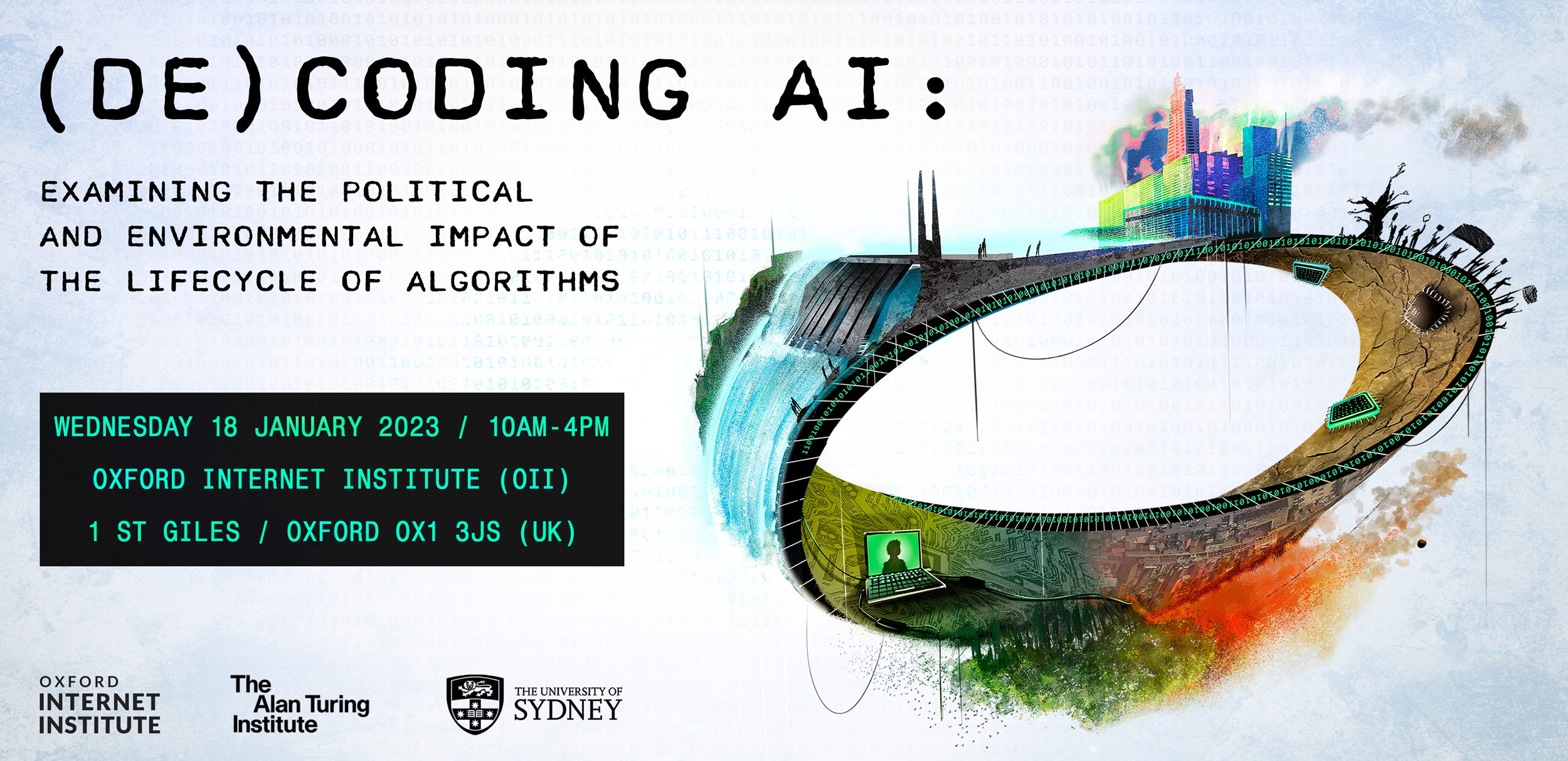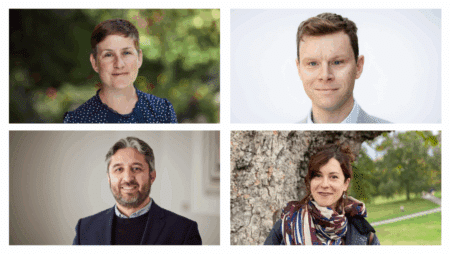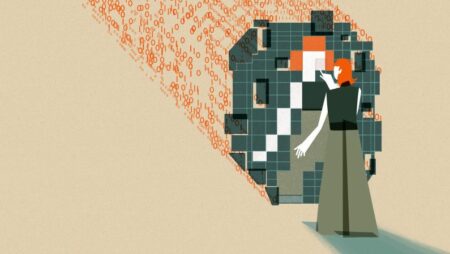
Research Programme on AI, Government and Policy
This programme supports research on AI, Government and Policy.

Ana Valdivia is a Departmental Research Lecturer in Artificial Intelligence (AI), Government, and Policy at the Oxford Internet Institute (OII). She investigates how datafication and algorithmic systems are transforming political, social, and ecological territories and communities. Her interdisciplinary work, situated at the intersection of Critical Data/AI Studies and Computer Science, has made significant contributions to digital ecology and the environmental impacts of AI, tech surveillance including biometric systems, and algorithmic fairness and accountability. With a background in mathematics, her research focuses on bridging the gap between AI studies and the social sciences by combining both quantitative and qualitative methodologies. Apart from her academic contributions, she collaborates with civil society organisations based in Europe and Latin America and has presented her work invited by relevant institutions such as the United Nations, the European Parliament, the Cambridge Union, and the local government of Barcelona.
Her current research agenda focuses on the AI supply chains, by investigating trade-off between environmental costs and social benefits of AI, from mineral extraction to chip manufacturing, data centres, and electronic waste dumps across different geographies. She is currently writing a book on this topic for Bristol University Press. Ana has explored the impact of datafication technologies in various contexts, including migration, gender-based violence and criminal justice. Her interdisciplinary methodology combines algorithmic systems and ethnographic methods. Her work has been published in notable AI and ethics conferences and journals, such as ACM Fairness, Accountability, and Transparency (FAccT), the AAAI/ACM Conference on AI, Ethics & Society, AI & Ethics, and AI & Society. Ana is currently an Associate Editor for the journal Big Data & Society, that publishes interdisciplinary work principally in the social sciences, humanities and computing and their intersections with the arts and natural sciences about the implications of digital technologies.
Ana was awarded the Young Academy of Spain, which is member of the International Science Council. In 2025, she was also a Visiting Research Fellow at the UCL Centre of Advanced Studies. In the same year, she received the Teaching Excellence Award from the Social Sciences Division of the University of Oxford. In 2023, her research on AI supply chains was made possible by a grant from the British Academy. In 2022, Ana received the Post-Doctoral Enrichment Award by The Alan Turing Institute. She is also a former fellow of Data Science for Social Good programme at the University of Chicago.
Her work has had a notable impact beyond academia and has garnered attention from international media outlets such as Al Jazeera, The Guardian, El País, The Washington Post, The New York Times, and Thomson Reuters, among others. Her work has also been featured in award-winning international documentaries, such as In The Belly of AI. She has delivered talks invited by the University of Cambridge (UK), Tecnológico de Monterrey (Mexico), Universidad de los Andes (Colombia), Princeton University (US), CNRS (France), University of Bologna (Italy), and has been invited by the historic debating and free speech society, the Cambridge Union.
Ana is interested in supervising projects that offer an original and critical perspective on AI, grounded in disciplines such as Science and Technology Studies (STS), Critical Data/AI Studies, Natural Language Processing (NLP), and Computational Social Science (CSS). As the main convenor of the course on Algorithmic Fairness and Accountability, she invites proposals that push boundaries across disciplines and merge methodologies, exploring sociotechnical issues and the technopolitical aspects of AI. Topics related to the epistemological power of algorithms and the materiality of AI are especially welcome.
She welcomes invites to develop proposals from diverse backgrounds and contexts, including political ecology, media ecologies, surveillance studies, and digital infrastructures. Below is a list of potential topics, though it is not exhaustive:
She strongly encourages students from any background who are eager to push the boundaries between disciplines and explore interdisciplinary methods within Critical Data/AI Studies to apply to work with her.
Please also note that she is not taken DPhil candidates for the next academic year 2026/27.

With Dr Ana Valdivia
This talk presents insights from an 18-month investigation into the supply chains of AI, funded by a British Academy grant awarded to Dr Ana Valdivia.

With Dr Ana Valdivia
This workshop will explore the interactions and controversies of algorithms beyond the code.

20 June 2025
OII researchers are set to attend the Association of Computing Machinery (ACM) Conference on Fairness, Accountability and Transparency (FAccT) 2025.

17 June 2025
Dr Adam Mahdi, Dr Ana Valdivia, Professor Greg Taylor, and Professor Kathryn Eccles are among the teaching faculty recognised for teaching excellence at Oxford.

9 June 2025
The Oxford Internet Institute’s Franziska Sofia Hafner explores whether language models are perpetuating gender stereotypes.

21 May 2025
Oxford researchers reveal how AI language models encode a flawed and binary understanding of gender, posing significant risks for transgender, nonbinary, and even cisgender individuals.

RTVE Noticias, 30 January 2026
Dr Ana Valdivia spoke to Spanish broadcaster RTVE about data centres, energy consumption and the environmental impact of AI.

New York Times, 20 October 2025
As tech companies build data centers worldwide to advance artificial intelligence, vulnerable communities have been hit by blackouts and water shortages, with commentary from the OII's Dr Ana Valdivia.

Al Jazeera, 03 July 2025
"What’s the environmental cost of our increasing data usage?" asks Al Jazeera, in a new documentary featuring an interview with the OII's Dr Ana Valdivia.

DPhil Student
Lujain is a DPhil student in Social Data Science at the OII. Her research sits at the intersection of AI governance and human-centred computing, particularly examining how user autonomy and control are undermined in human-AI interactions.

DPhil Student
Anna George is a Social Data Science doctoral student who uses computational approaches to study online political behaviour. Her research focuses on the message diffusion of alternative communities such as hate groups and political extremists.

DPhil Student
Boxi (bor-shi) is a DPhil researcher at the Oxford Internet Institute and a Research Policy Consultant with the OECD’s AI Policy Observatory (OECD.AI).
Examining automated decision-making systems and other algorithmic systems from a critical perspective, highlighting both their potential and the risks they pose to our societies.
